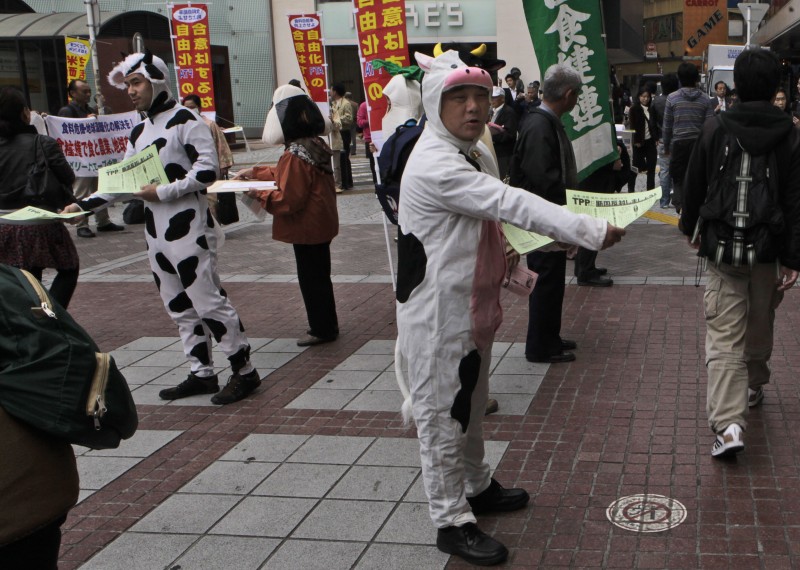Joining TPP could have China fallout
Asahi Shimbun 2011/01/14
Joining TPP could have China fallout
BY KEIKO YOSHIOKA CORRESPONDENT
BEIJING—Japan’s apparent eagerness to join the U.S.-led Trans-Pacific Partnership (TPP) free trade initiative could kill the momentum to forge free trade agreements with China and South Korea, a Chinese economics expert said.
Japanese and U.S. negotiators were to meet Thursday to start the first round of working-level discussions on Japan’s possible participation in the TPP.
Li Xiangyang, 48, director with the Institute of Asia-Pacific Studies under China’s government-affiliated leading think tank, the Chinese Academy of Social Sciences, said Japan’s participation in the TPP would force Beijing to rethink its multilateral trade strategy in Asia.
Excerpts from the interview follow:
Question: Calls are rising in Japan for Tokyo to take part in TPP negotiations. How will Beijing react?
Answer: China will be forced to review its strategy for an Asian economic cooperation framework if Japan joins the TPP. We built the concept for the framework centered on the Association of Southeast Asian Nations (ASEAN) Plus 3 (China, Japan and South Korea). In addition to Vietnam and Malaysia, Thailand and other countries are leaning toward the TPP to secure a competitive edge in the U.S market when it is liberalized. Japan’s possible participation will accelerate such a move.
Regardless of ASEAN Plus 3 or ASEAN Plus 6 (Japan, China, South Korea, India, Australia and New Zealand), it would be difficult for either of the frameworks to grow concurrently with the TPP. China will likely pursue bilateral free trade agreements it has been pushing, rather than a multilateral framework.
Q: Will China try to stop Japan from joining the TPP?
A: It would be impossible for China to do that, and it would not choose to do that, either.
Q: The Chinese government, referring to the TPP, said the integration of Asian economies should be carried out under a number of approaches simultaneously and incrementally. Does China see itself joining the TPP?
A: There is no plan for China to participate in the short run. It is a low-priority issue for China. Even if China expressed its intention to join by saying that it fulfilled all the requirements, I am afraid that the United States would maneuver to block China’s participation by making an unreasonable demand.
The United States always sees economic cooperation, not just the TPP, from viewpoints of both economic and security implications.
On the economic dimension, the TPP is designed to cash in on the vigor of Asian economies, an engine of the world’s economic growth after the global financial crisis. There is no question that it is also aimed to rein in China’s rise in the region. Other Asian countries are economically benefiting from China’s ascent through expanding their trade with China, but they are also concerned (about China’s growing clout).
That is why, I presume, they are seeking the involvement of the United States, a big presence outside the region.
Q: Will the discussions on the TPP have any impact on free trade agreement (FTA) talks that Japan, South Korea and China are working on together?
A: Experts from the three countries got together in Beijing in October toward concluding an FTA. They identified five major hurdles to be cleared: agriculture, differences among the three countries over their stands on regional security, the U.S. presence, the history issue between Japan and South Korea and jockeying for the leadership between Japan and China.
If Japan opts for the TPP, momentum for an FTA would be lost in the short run because the paucity of confidence in each other in the political arena—rather than the economic arena—constitutes a major impediment. It would negatively affect economic integration of the region.
But I think an FTA between China, Japan and South Korea should be promoted by overcoming barriers because it will play a crucial part in the integration of Asian economies.






